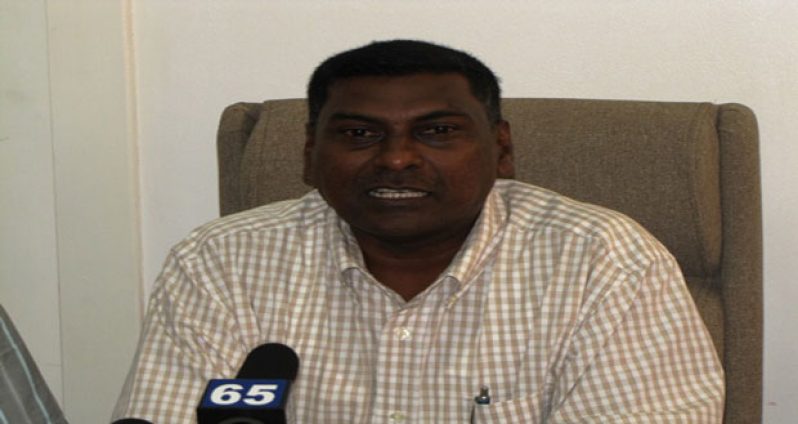AS the Ministry of Public Health continues to fight against vector-borne diseases, more emphasis will be placed on boosting health facilities at ports of entry to reduce chances of these diseases spreading when persons enter the country’s borders, according to Chief Medical Officer (CMO), Dr. Shamdeo Persaud.
In an interview with the Guyana Chronicle last Friday, the CMO said: “Currently, we are looking to expand the integrated vector management because we have acquired new vector equipment which could be used to develop health facilities so as to ensure that they are adequate enough… as we will also look to make the various ports of entry vector free, so even if someone comes with the disease there isn’t modality to transfer it.”
Following a recent committee meeting, he said, there were recommendations to improve surveillance so that measures will be in place to prevent the diseases from spreading in Guyana, as they are also continuing efforts towards vector control by means of protecting around homes, etc.
And they’re also discovering new ways in which individuals can protect themselves, in terms of eradicating breeding sites for mosquitoes and engaging in more clean-up exercises which have proven effective over the past few months.
REDUCTION IN MALARIA CASES
Dr. Persaud disclosed that they continually monitor the cases of malaria being recorded in the country, and by way of the ‘malaria information systems’, with the support of the Pan American Health Organisation (PAHO), they have been able to contain vector-borne diseases to some extent.
Furthermore, “all the sites from across the various regions which make up the malaria information system submit a periodical report which shows the number of recorded cases and from 2013 to 2014 there has been a reduction in the number of cases recorded,” said the CMO.
USING MOSQUITO NETS
He also noted the increased use of mosquito nets and the signing of a Memorandum of Understanding (MOU) with the Guyana Geology and Mines Commission (GGMC), the Guyana Gold and Diamond Miners Association (GGDMA), and other firms so that they could receive a quantity of nets for all members as well as persons who reside in communities where malaria is prevalent.
Moreover, the rapid malaria tests and the quarantine treatment have proven effective and to date there have been no real challenges. “I think that the programme is very useful because there has also been a decrease in the numbers of smears in 2014 as compared to 2013…therefore we will continue to fight against these vector-borne diseases to the best of our abilities.”


.jpg)











